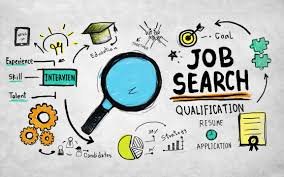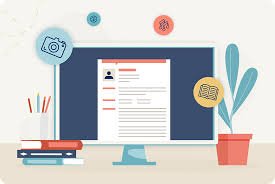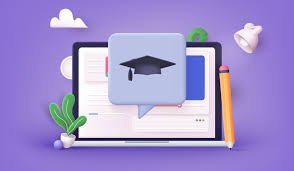
Beyond the Buzzword: Using AI in Your Job Search Ethically and Effectively
The Job Search Isn't Dead: A Guide to Using AI Ethically and Effectively
In recent years, the job market has undergone a significant transformation, with artificial intelligence becoming a central player. From writing job descriptions to screening resumes, AI is now deeply embedded in the recruitment process. This has left many job seekers feeling a mix of awe and anxiety. Is the job search as we know it over? Are we just competing with algorithms now?
The short answer is no. The job search is very much alive, and the human element—your unique skills, experiences, and personality—is more important than ever. However, to navigate this new landscape, you must understand how to use AI as a tool to enhance your job search, not to replace your authentic voice. This guide will show you how to leverage AI ethically and effectively, ensuring you stand out for all the right reasons.
Using AI to Your Advantage: The Do's and Don'ts
Think of AI as a powerful assistant that can automate tedious tasks and provide strategic insights. The key is to use it as a starting point, not a final destination.
Do: Use AI for Optimization and Research
-
Tailor Your Resume and Cover Letter: One of the most common uses of AI is to optimize your application materials for Applicant Tracking Systems (ATS). You can paste a job description into a tool like ChatGPT or Google Gemini and ask it to identify key skills and keywords. Then, you can use these insights to refine your resume and cover letter, ensuring your documents get past the initial screening.
-
Generate a First Draft: Facing a blank page is often the hardest part of any writing task. Use AI to generate a preliminary draft of a cover letter or a response to a tricky application question. This can help you overcome writer's block and give you a solid structure to build upon.
-
Practice for Interviews: AI-powered interview simulators can be a game-changer for preparing for the big day. You can practice common interview questions, get real-time feedback on your pacing and word choice, and refine your answers to be more concise and impactful. This is especially useful for practicing with the STAR (Situation, Task, Action, Result) method.
-
Research Companies and Industries: AI can quickly summarize company profiles, break down complex industry trends, and provide insights into a company's culture and values. This saves you valuable time and allows you to go into an interview or networking event well-informed.
Don't: Cross the Ethical Line
-
Fabricate Experiences or Skills: This is the most critical rule. Never use AI to invent qualifications, job titles, or achievements that you don't actually have. This is a form of dishonesty that can lead to being fired if discovered and will tarnish your reputation.
-
Submit Unedited, AI-Generated Content: Recruiters can often spot generic, robotic-sounding text that has been copied and pasted directly from an AI tool. Your goal is to let your unique voice and personality shine through. Use AI to assist, but always review and personalize every word.
-
Cheat on Tests or Assessments: Using AI to complete an online test, personality assessment, or coding challenge is a form of academic and professional misconduct. These tests are designed to evaluate your true abilities and character; using AI defeats the entire purpose.
-
Ignore Your Privacy: Be mindful of the data you share with AI tools. While many are safe, others may not have robust data protection measures. Avoid pasting sensitive personal information like your home address, Social Security Number, or detailed work history into a free, public AI tool.
Navigating AI in a Human-Centric World
The ultimate goal of the job search is to find a role where your skills and personality are a good fit. AI should serve that purpose, not obscure it. In fact, ethical and effective use of AI can highlight the very human qualities that machines can't replicate.
-
Authenticity: The best applications and interviews are authentic. AI can help you refine your message, but the stories, achievements, and motivations should be genuinely yours. When you submit an application that reflects your true self, you're more likely to land a job where you'll be happy and successful.
-
Critical Thinking: AI is a tool, not a crutch. It requires you to be a skilled user. You have to think critically about the prompts you use and the output you receive. Is the language natural? Is it an accurate reflection of your experience? Your ability to use AI as a strategic partner demonstrates a valuable skill in itself.
-
Emotional Intelligence: While an algorithm might filter a resume, a human is making the final hiring decision. They're looking for empathy, collaboration, and a good cultural fit—all of which are based on human interaction. By using AI to streamline the process, you free up more time to network, build relationships, and demonstrate the soft skills that truly matter.
The job search today is a hybrid endeavor. It's about leveraging the power of technology to make the process more efficient while never losing sight of the essential human connection. By approaching AI with a blend of curiosity, strategy, and integrity, you can transform it from a daunting obstacle into a powerful ally, ensuring your career journey is one of skill and character.
FAQs
1. Can recruiters tell if my resume was written by AI?
Many recruiters and hiring managers have become adept at spotting generic, formulaic language often found in unedited AI-generated content. While AI-detection tools exist, the real tell-tale sign is a lack of personal voice and specific, unique details. The best strategy is to use AI to improve your content, not to create it from scratch.
2. Is it dishonest to use AI to write my cover letter?
Using AI to draft a cover letter or to improve its grammar and clarity is not inherently dishonest. It's a modern form of a spell-check or grammar tool. The dishonesty comes when you use it to fabricate experiences or submit a letter that is entirely the AI's creation, without any personal input or reflection of your own story.
3. How can I use AI to stand out from other candidates?
Instead of using AI for a generic application, use it for hyper-personalization. For example, give the AI your resume and the job description and ask it to identify specific bullet points to highlight. You can then use those insights to craft a highly tailored and compelling application that a less strategic job seeker might not have.
4. What are some specific, ethical AI tools I can use?
Platforms like LinkedIn's Career Advice, Google's Interview Warmup, and Grammarly are all excellent, ethical tools for job seekers. For general AI, you can use ChatGPT or Google Gemini as long as you use them as a tool for brainstorming and editing, not for fabrication. Always read the privacy policies.
5. How do I make sure my resume gets through the Applicant Tracking System (ATS)?
ATS systems are designed to parse resumes for keywords and specific formatting. Using AI to identify relevant keywords from a job description is a smart move. Additionally, ensure your resume has a clean, simple layout with standard headings like "Work Experience" and "Education." Avoid graphics or complex tables that can confuse the system.



